Modernism Quotes
Quotes tagged as "modernism"
Showing 1-30 of 246

“...if you do not even understand what words say,
how can you expect to pass judgement
on what words conceal?”
― Trilogy: The Walls Do Not Fall / Tribute to the Angels / The Flowering of the Rod
how can you expect to pass judgement
on what words conceal?”
― Trilogy: The Walls Do Not Fall / Tribute to the Angels / The Flowering of the Rod
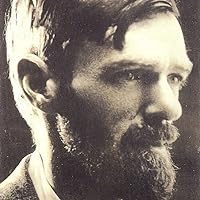
“Yes, I do believe in something. I believe in being warm-hearted. I
believe especially in being warm-hearted in love, in fucking with a
warm heart. I believe if men could fuck with warm hearts, and the women
take it warm-heartedly, everything would come all right. It's all this
cold-hearted fucking that is death and idiocy.”
―
believe especially in being warm-hearted in love, in fucking with a
warm heart. I believe if men could fuck with warm hearts, and the women
take it warm-heartedly, everything would come all right. It's all this
cold-hearted fucking that is death and idiocy.”
―
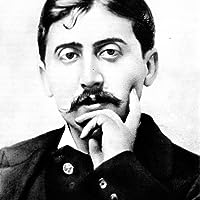
“I cannot express the uneasiness caused in me by this intrusion of mystery and beauty into a room I had at last filled with myself to the point of paying no more attention to the room than to that self. The anesthetizing influence of habit having ceased, I would begin to have thoughts, and feelings, and they are such sad things.”
― Du côté de chez Swann
― Du côté de chez Swann

“For instance? Well, for instance, what it means to be a man. In a city. In a century. In transition. In a mass. Transformed by science. Under organized power. Subject to tremendous controls. In a condition caused by mechanization. After the late failure of radical hopes. In a society that was no community and devalued the person. Owing to the multiplied power of numbers which made the self negligible. Which spent military billions against foreign enemies but would not pay for order at home. Which permitted savagery and barbarism in its own great cities. At the same time, the pressure of human millions who have discovered what concerted efforts and thoughts can do. As megatons of water shape organisms on the ocean floor. As tides polish stones. As winds hollow cliffs. The beautiful supermachinery opening a new life for innumerable mankind. Would you deny them the right to exist? Would you ask them to labor and go hungry while you yourself enjoyed old-fashioned Values? You—you yourself are a child of this mass and a brother to all the rest. or else an ingrate, dilettante, idiot. There, Herzog, thought Herzog, since you ask for the instance, is the way it runs.”
― Herzog
― Herzog

“Anya looked upon Nin admirably. Having him as a partner-in-crime—if only on this one occasion, which she hoped would only be the start of something more—was more revitalizing than the cheap thrills of a cookie-cutter shallow, superficial romance, where the top priority was how beautiful a person was on the outside.”
― The Other Side of Life
― The Other Side of Life
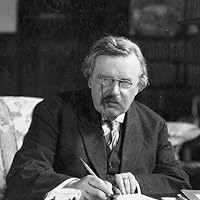
“In the glad old days, before the rise of modern morbidities...it used to be thought a disadvantage to be misunderstood.”
― Heretics
― Heretics

“The melancholy of the antique world seems to me more profound than that of the moderns, all of whom more or less imply that beyond the dark void lies immortality. But for the ancients that ‘black hole’ is infinity itself; their dreams loom and vanish against a background of immutable ebony. No crying out, no convulsions—nothing but the fixity of the pensive gaze.
With the gods gone, and Christ not yet come, there was a unique moment, from Cicero to Marcus Aurelius, when man stood alone. Nowhere else do I find that particular grandeur.”
―
With the gods gone, and Christ not yet come, there was a unique moment, from Cicero to Marcus Aurelius, when man stood alone. Nowhere else do I find that particular grandeur.”
―
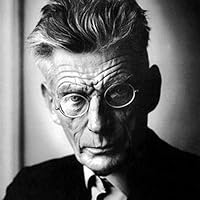
“ESTRAGON: We always find something, eh Didi, to give us the impression we exist?
VLADIMIR: (impatiently). Yes, yes, we’re magicians. But let us persevere in what we have resolved, before we forget.”
― Waiting for Godot
VLADIMIR: (impatiently). Yes, yes, we’re magicians. But let us persevere in what we have resolved, before we forget.”
― Waiting for Godot
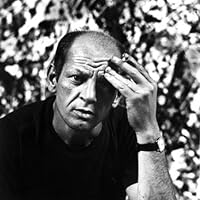
“The modern artist is working with space and time and expressing his feelings rather than illustrating.”
―
―
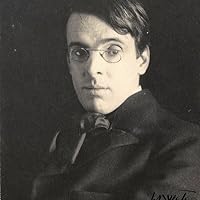
“I made my song a coat
Covered with embroideries
Out of old mythologies
From heel to throat;
But the fools caught it,
Wore it in the world's eyes
As though they'd wrought it.
Song, let them take it,
For there's more enterprise
In walking naked”
― The Collected Poems of W.B. Yeats
Covered with embroideries
Out of old mythologies
From heel to throat;
But the fools caught it,
Wore it in the world's eyes
As though they'd wrought it.
Song, let them take it,
For there's more enterprise
In walking naked”
― The Collected Poems of W.B. Yeats
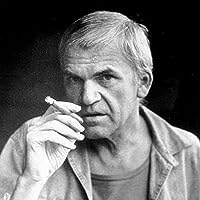
“What could I say? Maybe this: the man hunched over his motorcycle can focus only on the present instant of his flight; he is caught in a fragment of time cut off from both the past and the future; he is wrenched from the continuity of time; he is outside time; in other words, he is in a state of ecstasy; in that state he is unaware of his age, his wife, his children, his worries, and so he has no fear, because the source of fear is in the future, and a person freed of the future has nothing to fear.”
― Slowness
― Slowness
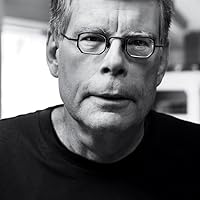
“He died with his tie on. Do you think that could be our generation's equivalent of that old saying about dying with your boots on?”
― The Stand
― The Stand

“Art becomes so specialized as to be comprehensible only to artists, and they complain bitterly of public indifference to their work.
Competition arises. The wild battle for success becomes more and more material. Small groups who have fought their way to the top of the chaotic world of art and picture-making entrench themselves in the territory they have won. The public, left far behind, looks on bewildered, loses interest and turns away.”
― Concerning the Spiritual in Art
Competition arises. The wild battle for success becomes more and more material. Small groups who have fought their way to the top of the chaotic world of art and picture-making entrench themselves in the territory they have won. The public, left far behind, looks on bewildered, loses interest and turns away.”
― Concerning the Spiritual in Art
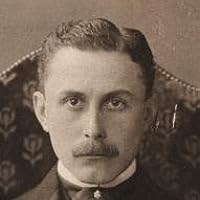
“I will not subscribe to the argument that ornament increases the pleasure of the life of a cultivated person, or the argument which covers itself with the words: “But if the ornament is beautiful! ...” To me, and to all the cultivated people, ornament does not increase the pleasures of life. If I want to eat a piece of gingerbread I will choose one that is completely plain and not a piece which represents a baby in arms of a horserider, a piece which is covered over and over with decoration. The man of the fifteenth century would not understand me. But modern people will. The supporter of ornament believes that the urge for simplicity is equivalent to self-denial. No, dear professor from the College of Applied Arts, I am not denying myself! To me, it tastes better this way.”
― Ornament and Crime: Selected Essays
― Ornament and Crime: Selected Essays

“In one sense, (Duchamp's) “The Large Glass” is a glimpse into Hell; a peculiarly modernist Hell of repetition and loneliness.”
― The Shock of the New
― The Shock of the New

“What does it mean to demonstrate in the streets, what is the significance of that collective activity so symptomatic of the twentieth century? In stupefaction Ulrich watches the demonstrators from the window; as they reach the foot of the palace, their faces turn up, turn furious, the men brandish their walking sticks, but “a few steps farther, at a bend where the demonstration seemed to scatter into the wings, most of them were already dropping their greasepaint: it would be absurd to keep up the menacing looks where there were no more spectators.” In the light of that metaphor, the demonstrators are not men in a rage; they are actors performing rage! As soon as the performance is over they are quick to drop their greasepaint! Later, in the 1960s, philosophers would talk about the modern world in which everything had turned into spectacle: demonstrations, wars, and even love; through this “quick and sagacious penetration” (Fielding), Musil had already long ago discerned the “society of spectacle.”
― The Curtain: An Essay in Seven Parts
― The Curtain: An Essay in Seven Parts

“The deep sorrow, sadness and disappointment of what modern civilization had become at the end of the cold war, is what triggered globalism and the idea of transhumanism.”
―
―
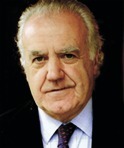
“One of the many innovations of modernism was the new demands it placed on the audience. Music, painting, literature, even architecture, would never again be quite so 'easy' as they had been.”
― A Terrible Beauty : The People and Ideas That Shaped the Modern Mind - A History
― A Terrible Beauty : The People and Ideas That Shaped the Modern Mind - A History
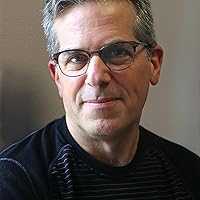
“For those whose ganglia were formed pre-TV, the mimetic deployment of pop-culture icons seems at best an annoying tic and at worst a dangerous vapidity that compromises fiction's seriousness by dating it out of the Platonic Always, where it ought to reside.”
―
―

“The anti-religious modernism which now threatens Islam and Muslims everywhere can be fully understood only by understanding the religion of the civilization in whose bosom modernism first developed, against which it rebelled, and whose tenets it has been challenging through constant battle since the birth of the modern world in the Renaissance.”
― A Young Muslim's Guide to the Modern World
― A Young Muslim's Guide to the Modern World
“In his own way the modernist becomes as irrelevant as the fundamentalist. The fundamentalist has something to say to his world, but he has lost the ability to say it. The modernist knows how to speak to his age, but he has nothing to say.”
―
―

“They wanted facts. Facts! They demanded facts from him, as if facts could explain anything!”
― Lord Jim
― Lord Jim

“Finally, the functionalist organization, by privileging progress (i.e. time), causes the condition of its own possibility--space itself--to be forgotten: space thus becomes the blind spot in a scientific and political technology. This is the way in which the Concept-city functions: a place of transformations and appropriations, the object of various kinds of interference but also a subject that is constantly enriched by new attributes, it is simultaneously the machinery and the hero of modernity.”
― The Practice of Everyday Life
― The Practice of Everyday Life

“We, that is, the traditionalists like myself, use the term ‘‘modernism’’ not in a vague way as characterizing just things that happen to be around today, but as a particular way of looking at the world, a worldview that began in the Renaissance in the West with such components as Renaissance humanism, rationalism, et cetera. As I have mentioned already, modernism rejects the primacy of absolute and ultimate truth transcending the human order and descend- ing upon the human realm from the Divine Order. It places man himself at the center of the stage as ‘‘the absolute.’’ In a sense it absolutizes the human being in his or her earthly reality. Usually it does not come out and say so explicitly, but that is what it really means; that is, it takes the absolute away from God and puts it on the human plane, and therefore makes human reason, human perceptions, human interests the criteria of reality, of knowledge, of the truth, of the goal of human life. Therefore, as a consequence it substitutes the significance of the temporal and the transient for the abiding and the eternal.”
― در جستوجوی امر قدسي
― در جستوجوی امر قدسي

“Modernism, philosophically speaking, is in a sense the ‘‘worship’’ of time and the transient, a kind of deification of time and becoming and all that flows in the temporal order. That is why it resulted quickly in historicism and evolutionism and the theories all of those 19th-century philosophers such as Hegel and Marx and scientists such as Darwin. Such people are very different from one point of view, but they all in a sense divinize history even if Marx rejected the category of ‘‘divine.’’ The historical process is the reality that is domi- nant in modern thought. It is that which determines values and even real- ity today in the dominant Western paradigm.”
― در جستوجوی امر قدسي
― در جستوجوی امر قدسي

“Modernism does not mean simply change and newness; it is a particular way of looking at the world, a particular philosophy based on the rejec- tion of the theocentric view of reality—that is, removing God from the center of reality and putting man in His place. In a sense, it is a substitu- tion of the kingdom of man for the Kingdom of God, therefore paying special attention to the individual and individualism and to the different powers of the individual human being such as reason and the senses. Therefore, its method of cognition, its epistemology, is based essentially upon either rationalism or empiricism, and it makes human values, the values of terrestrial man, the supreme set of values and the criteria for all things.”
― در جستوجوی امر قدسي
― در جستوجوی امر قدسي
All Quotes
|
My Quotes
|
Add A Quote
Browse By Tag
- Love Quotes 96.5k
- Life Quotes 75.5k
- Inspirational Quotes 72k
- Humor Quotes 43.5k
- Philosophy Quotes 29.5k
- Inspirational Quotes Quotes 26.5k
- God Quotes 26k
- Truth Quotes 23.5k
- Wisdom Quotes 23.5k
- Romance Quotes 22.5k
- Poetry Quotes 22k
- Death Quotes 20k
- Happiness Quotes 18.5k
- Life Lessons Quotes 18.5k
- Hope Quotes 17.5k
- Faith Quotes 17.5k
- Quotes Quotes 16.5k
- Inspiration Quotes 16.5k
- Spirituality Quotes 15k
- Religion Quotes 15k
- Motivational Quotes 14.5k
- Writing Quotes 14.5k
- Relationships Quotes 14.5k
- Life Quotes Quotes 14k
- Love Quotes Quotes 13.5k
- Success Quotes 13.5k
- Time Quotes 12k
- Motivation Quotes 12k
- Science Quotes 11.5k
- Knowledge Quotes 11k




